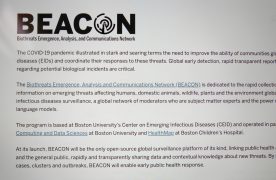It is difficult to decide how to read a poetry anthology.
The Agni Thirtieth Anniversary Poetry Anthology doesn’t flow like your play list, and is not organized by subject, tone, or form. You can’t really turn to the first page and start reading.
You could start at the contents page, scanning for the names you know. In Agni you would find several famous names. Boston University superstars Derek Walcott and Robert Pinsky are neatly tucked away in the long, alphabetical list. Other famous writers catch your eye, such as Joyce Carol Oates, Chinua Achebe or Jorge Luis Borges. But what do you miss when you read an anthology selectively, snobbishly? In Agni, you would miss many great poems. You would miss ‘Les Enfants Terribles,’ by David Lehman, whose name you might scan by, whose poem perfectly articulates the middle of a relationship, ‘When girlfriend and boyfriend begin to find out/ what each other is really like.’
You could skim the contents for a title that catches your eyes, such as ‘My Father’s Pornography,’ a poem by David Wohjan. Here is a blazing poem, which you read through like you read someone else’s mail. You think you understand what it means and how it feels when a young boy finds a pile of porno magazines in the basement. You come to the last stanza, where the boy is now grown and buying his own magazines. Then the poem is suddenly not at all about pornos; it is now about Emperor Hirohito who does not know that he is dying of cancer. What do you make of that twist? So you muse, and flip back to the contents to search for another irony to read.
At night, before you fall asleep, you can turn to a random page. This method is preferable; it ensures poetic dreams, even if they’re not always pleasant. You may turn to ‘Prophecy,’ by Jules Supervielle, and sleep that night dreaming of a ghostly, post-apocalyptic scene. Or you might come across ‘Bedclothes,’ by Coleman Barks, and as you sleepily turn out the lights, you think of another body curling next to you, making small sounds. You read his poem, full of awe for life and curiosity for death, and you have a dream about a philosopher on a park bench who explains the world to you.
The poems are universes unto themselves, and probably the best example of a word-world is Derek Walcott’s ‘Omeros,’ a sweeping 64-chapter epic that intertwines Homeric legend, classics, folklore and history. The section printed in the anthology artfully describes a boat trip on an African river, and it’s clear to you why he won the Nobel Prize for ‘Omeros’ in 1992.
This hefty book you are digesting is the 56th edition of Agni, and last to be edited by founder Askold Melnyczuk. Several literary-minded students brought their underground high school paper with them to college in 1972 and created Agni as a literary magazine at Antioch College. This collection includes some new poems, some old poems, some lost poems and some newly translated ones. Agni has grown to be a well-respected literary journal. Agni has been incubating their bi-annual journal in a Boston University brownstone since 1987. Melnyzcuk’s touching introduction is somewhat short and overly concerned with thanking people, but gives an interesting insight behind the scenes at Agni. This introduction included the comment,
‘BU was a large part of why Boston in the eighties was, for my money, as close as you could get to Paris in the ’20s.’
And this anthology convinces you that Boston is a center for literary culture. There are 244 poems in this anthology, and no matter how you read it or what you like you will find in it the beautiful, the desperate, the inspirational and the grotesque.
This is an account occasionally used by the Daily Free Press editors to post archived posts from previous iterations of the site or otherwise for special circumstance publications. See authorship info on the byline at the top of the page.












